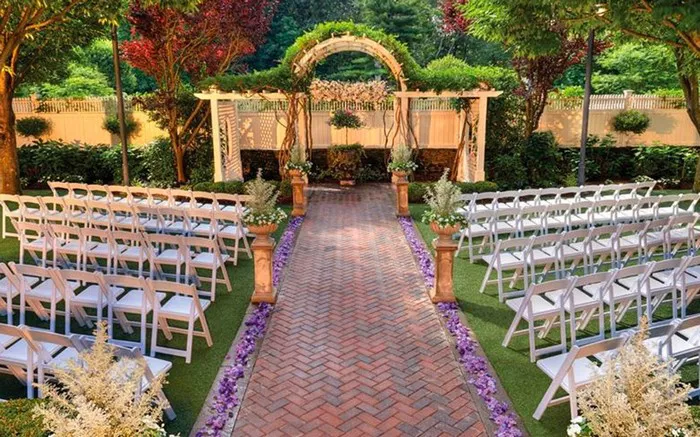BAUXITE, Ark. — As wedding season blossoms across Arkansas this spring, more couples are opting for smaller, budget-conscious ceremonies in response to the rising cost of tying the knot.
With the average U.S. wedding now priced around $36,000, many soon-to-be-weds are scaling back to avoid long-term debt. In Arkansas, the typical wedding runs closer to $26,000, but even that figure is prompting couples to rethink traditional celebrations in favor of more affordable, intimate alternatives.
Destiny Brown, a bride-to-be, began her wedding planning with a modest budget in mind—roughly $3,000 to $4,000. But that estimate was quickly surpassed.
“I definitely did not realize how expensive weddings could get,” Brown said. “I’ve heard brides talk about it, but I didn’t truly understand until I started planning it myself.”
Brown and her fiancé decided to significantly reduce their guest list and shift their ceremony to a weekday in an effort to save money. They also chose to forgo a reception, citing the high costs of catering and event planning.
“We’re not hiring a wedding planner. We’re planning everything ourselves and cutting costs wherever we can while still making it a special day,” she said.
This growing trend toward downsized weddings is having a notable impact on the wedding industry. Vendors like planners and venue operators are seeing a drop in bookings and increased cancellations.
Sarah Gilbert, owner of SG Events LLC in Central Arkansas, says her services are often the first to be eliminated when couples face budget constraints.
“I had two brides cancel on me this year alone,” Gilbert noted. “When it comes down to feeding guests or hiring a coordinator, unfortunately, I’m the one who gets cut.”
Tiffany Skaggs, who operates the StoneBrook Meadows wedding venue, has also noticed a shift. Cancellations have spiked this year, and many couples are opting to elope instead of hosting traditional weddings.
“In previous years, cancellations were rare,” Skaggs said. “Now, I’ve had more this year than any other. Couples are looking for simpler, more affordable options.”
Both Gilbert and Skaggs point to inflation and social media as contributing factors. While social platforms fuel expectations for extravagant weddings, today’s economic realities force many couples to scale back.
“Social media creates this idea of the ‘perfect wedding,’ but the cost to achieve that is out of reach for many,” Skaggs said. “It becomes a case of Instagram versus reality.”
To help couples achieve a beautiful celebration without breaking the bank, Skaggs offers inclusive packages with in-house decor. “We include a ton of items so couples don’t have to purchase everything themselves. It’s a way to offer value and ease,” she said.
DIY wedding planning has also surged as a money-saving strategy. From floral arrangements to decorations, couples are embracing a hands-on approach. Gilbert encourages the trend but warns that the process can be overwhelming.
“I support the DIY movement, but it’s heartbreaking to see a bride stressed and exhausted trying to manage everything alone,” she said. “That’s where a coordinator can really bring peace of mind.”
Despite the financial challenges facing the industry, both Gilbert and Skaggs remain committed to their roles in creating meaningful celebrations.
“Life can be tough,” Skaggs said. “But weddings are a reminder that there’s still joy and love to celebrate. Being part of that is a blessing.”
Couples planning a wedding should also be aware of additional financial variables, such as tariffs, which can influence the cost of imported goods and materials commonly used in wedding planning.
As economic pressures reshape what weddings look like across Arkansas, one thing remains unchanged: the desire to create a day that reflects love, commitment, and personal meaning—regardless of the price tag.

